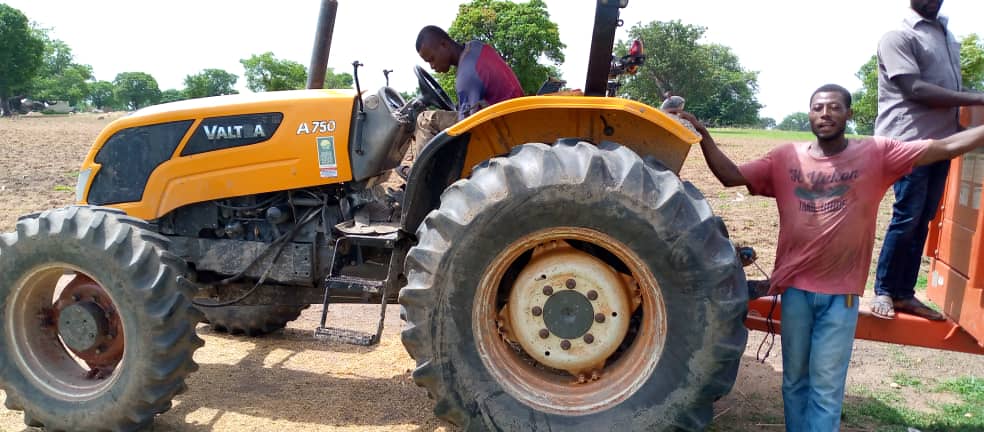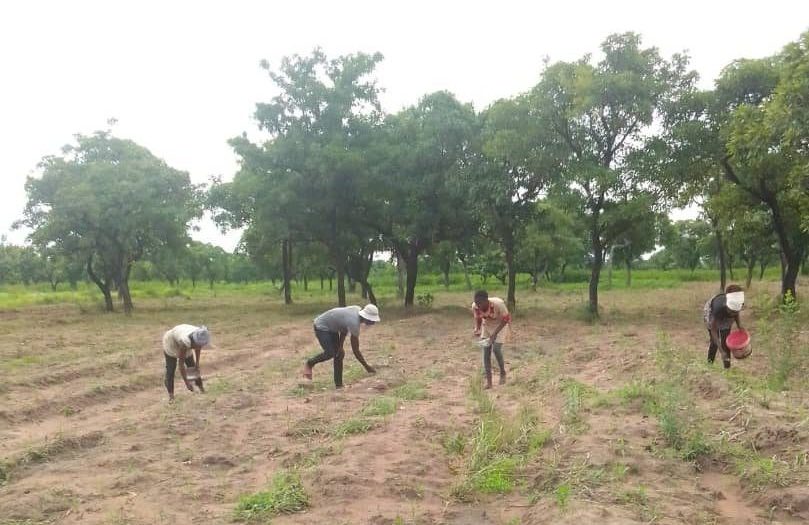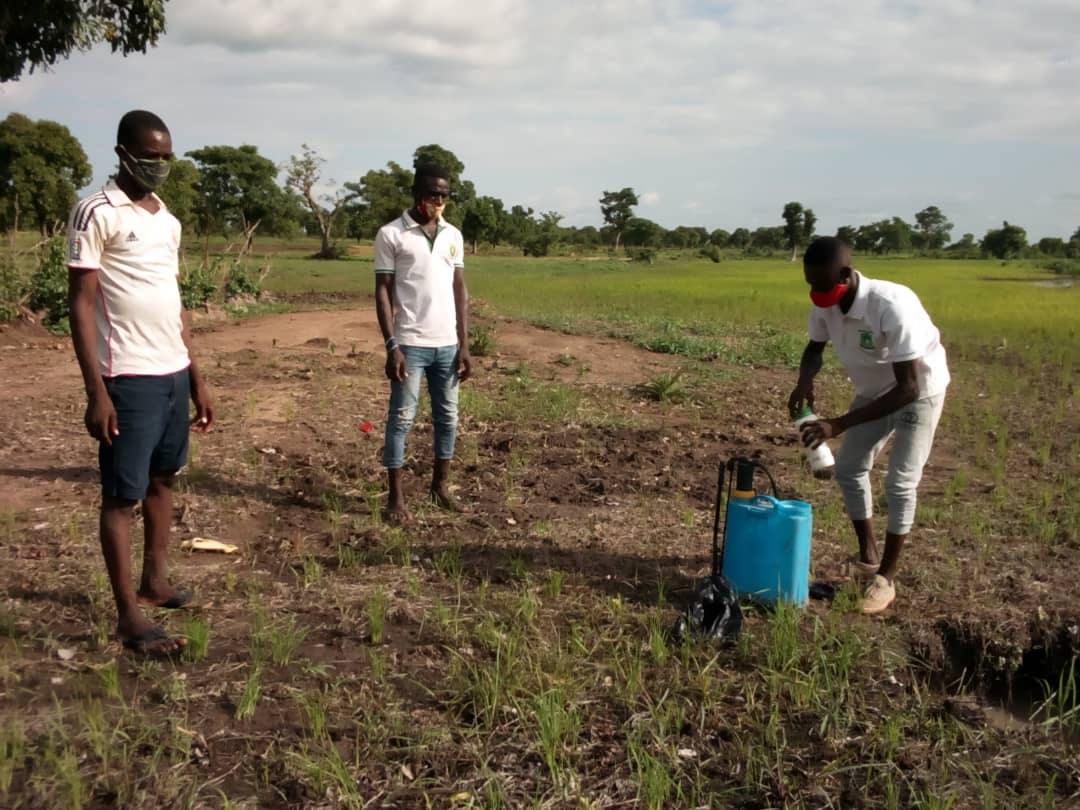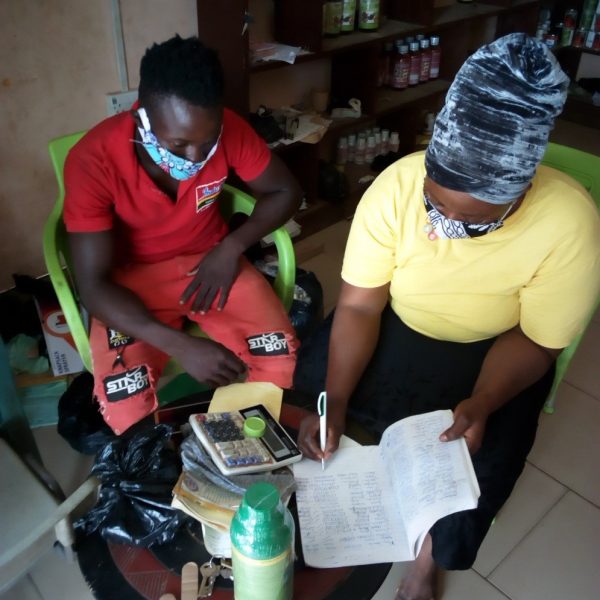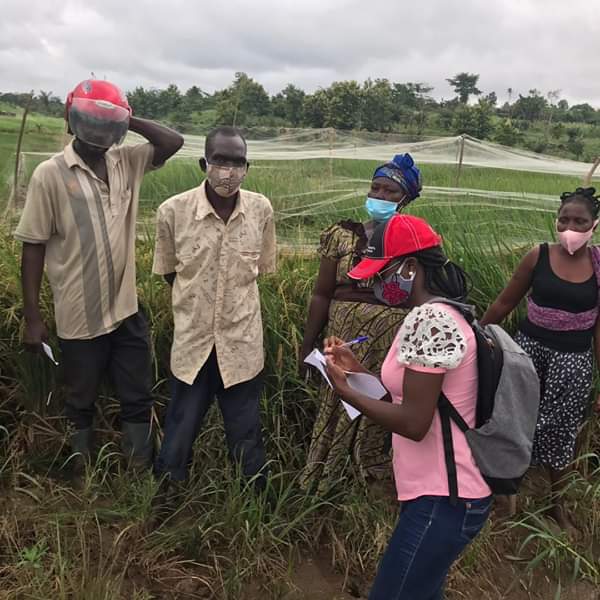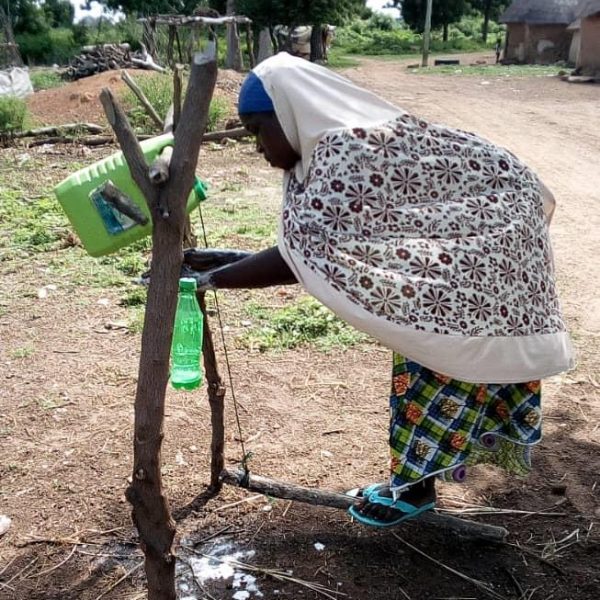The COVID-19 pandemic may have overshadowed prospects for businesses in the short term, but the agricultural sector – and small-scale rural enterprises in particular – face many challenges at the best of times. Over the course of a month, MADE’s 30 graduate interns have worked with their host agribusinesses and Farm Enterprise Advisors (FEAs) in supporting smallholder farmers across Northern Ghana to improve the way they prepare their land, plant crops and apply essential inputs. In doing so, they have helped keep seasonal activities on track as well as gaining invaluable, hands-on experience in many aspects of farm business management.
Rolling up their sleeves
The MADE internship provided graduates with the opportunity to visit farming communities and, along with FEAs, advise, consult with and learn from smallholder farmers. But these outings involved much more than just advice – the graduate interns rolled up their sleeves and helped deliver inputs to farmers, operated tractors to plough fields and demonstrated good agricultural practices. As Abagna Awine, deployed in Kassana Nankana East, put it, “It’s a whole new experience having to be in the field for a whole week.”
Spreading good practices
MADE’s agribusiness partners support their smallholder farmers throughout the year and the interns were involved in several crucial early season activities. These included germination tests on high yielding seeds, helping owners to coordinate sourcing and delivery of agrochemicals, and mechanisation services. They also incorporated some of their own knowledge into the companys’ extension service activities – for instance, the adoption of good agricultural practices and how to ensure a safe working environment for farmers and their families.
Handling with care
A critical part of agribusiness support to farmers involves supplying fertilisers and pesticides. But safe and proper use is essential. “Last year, a farmer used non-selective weedicides and wiped out his entire crop, only because he did not know the difference and did not ask anyone”, lamented Rashid Bamonbey, working in the Upper West Region. Other interns noted that some farmers applied pesticides without using protective clothing, risking burns to their skin and inhalation of potentially harmful fumes. Improper disposal of agrochemicals and packaging was also commonplace. The interns were able to advise farmers on good practice as well as the safe disposal of waste by drawing attention to the dangers to themselves, others and the wider environment.
Learning the ropes
When not in the field, MADE’s graduate interns spent time in and around the host agribusinesses and relished the opportunity to learn about and participate in the supply chain. Rita Zanlerigu, based in Bolgatanga Municipal District, observed, “I held several discussions with the host just to have more insight on the business – its business model, profit and loss management, future investment, and opportunities during COVID-19. It was insightful to be educated on the approach adopted by the firm. The key values I learned were perseverance, truth and fairness.” The interns were also able to gain experience of teamwork through their interactions with company staff.
The work of these graduates is already being recognised. Mr Paul Siame, the Acting National Director of Agricultural Extension Services at the Ministry of Food and Agriculture, reported that the graduate internships launched by MADE are impacting positively on COVID-19 awareness and provision of farm advisory services to smallholder farmers, adding, “the programme is providing opportunities to young graduates to acquire field experiences, including the tenants of private sector business operations.”

